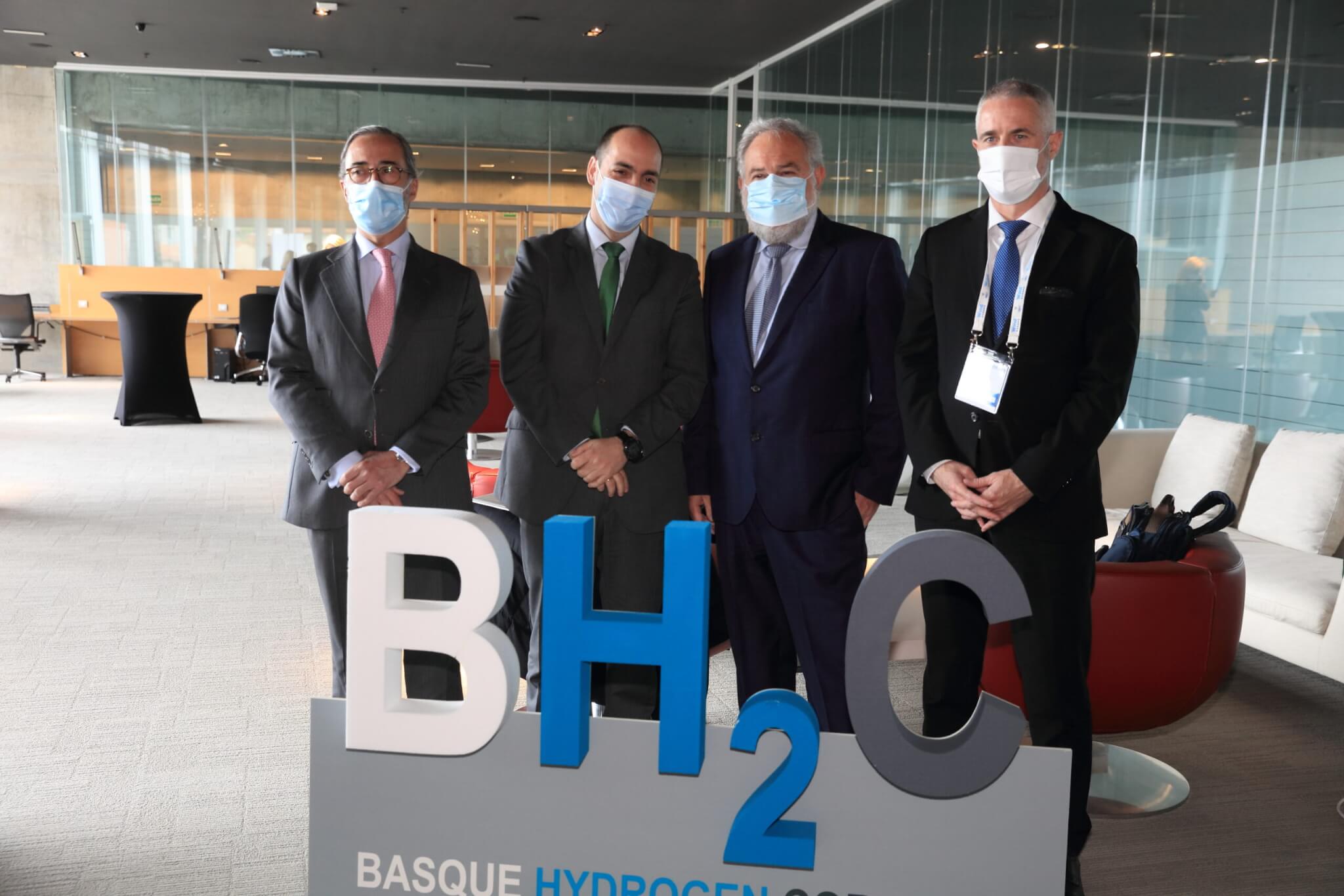The Basque country hosts the first meeting of the world clusters of the World Economic Forum’s “net-zero emissions” initiative
The World Economic Forum (WEF) has chosen the Basque Country to hold today and tomorrow (7 and 8 April) the first meeting of the world clusters involved in the “transitioning industrial clusters towards net zero” initiative; the Hynet Cluster (United Kingdom), Zero Carbon Humber (United Kingdoms), Kwinana Industrial Area (Australia), Chemelot (the Netherlands) and the Basque Net Zero Industrial Super Cluster are so far taking part.
The sessions are taking place at the BEC and at the Accenture specialist centre at the Bizkaia Science and Technology Park, and are aimed at connecting the different international clusters in the initiative, agreeing on its governance model and learning about the main characteristics and assets of the Basque Net Zero Industrial Super Cluster. Furthermore, the event has allocated time to connect with potential new clusters that envisage signing up to the initiative in the near future.
The “transitioning industrial clusters towards net zero” initiative is promoted by the World Economic Forum, along with the Electric Power Research Institute (EPRI) and Accenture, with the goal of achieving net zero emissions by 2050.
The sessions were opened by Joanna Kolomanska, from WEF, and the Basque Government’s Deputy Minister for Industry, Mikel Amundarain, took part.
The Basque Net Zero Industrial Super Cluster is represented by its current business and industrial representatives (Petronor & Iberdrola, Energy Cluster, Aclima, Siderex, AFV and the Paper Cluster), along with representatives of the Basque Government and SPRI.
The visit agenda is divided into 4 blocks:
- Visit to Wind Europe and to the Wind Energy Basque Country stand, organised by the Energy Cluster and EVE (Basque Energy Board), which pools the industrial and technological capabilities and the latest developments of over 50 Basque public entities and organisation in a joint space of over 800 m2.
- Presentation of the main initiatives of representatives of the Basque Net Zero Industrial Super Cluster, such as:
- The Basque Hydrogen Corridor, led by Petronor, which has over 73 participating companies and entities, and 40 projects that expect to leverage an investment of €1,500 million up to 2026.
- The Iberdrola Global Smart Grids Innovation Hub, the global innovation and knowledge centre and a world benchmark in smart grids, which has identified, along with over 30 technological partners, 120 projects worth €110 million to meet the challenges of the energy transition.
- Sessions behind closed doors between the industrial clusters participating in the initiative, aimed at sharing the progress and challenges faced by each cluster, specifically the project’s governance structure and model, and at identifying opportunities that allow the project to grow progressively and accommodate new clusters.
- Sessions with the potential new clusters that envisage signing up to the initiative in the near future: Sines Cluster (Portugal), Puglia Cluster (Italy), Port of Antwerp Cluster (Belgium) and five US clusters. In particular, the intention is to hold a specific session with key figures from the US Department of Energy in order to present the Basque case and the steps to be taken to form part of the initiative.
Basque Net Zero Industrial Super Cluster
Presented by the Basque Government’s Minister for Economic Development, Sustainability and the Environment, Arantxa Tapia, in the Basque Country on 28 October and at the 2021 United Nations Climate Change Conference-COP26 held in Glasgow on 3 and 4 November, the “Basque Net Zero Industrial Super Cluster” initiative is one of the four regional projects invited to form part of the initiative promoted by the World Economic Forum to achieve net-zero emissions by 2050.
Specifically, the World Economic Forum’s “transitioning industrial clusters towards net zero” initiative seeks to highlight the achievement of industrial clusters in the transition towards net zero emissions and, thus, motivate and offer experiences and best practices to other cluster so that they make commitments in that transition.
With nearly 80% of the world economy now committed to achieve net zero emissions, there is a pressing need to act to meet this ambitious goal; it is essential that the companies of the different industrial sectors, particularly those with a high energy consumption – and, therefore, CO2 emissions associated to that consumption – play a key role in compliance of those commitments.
Related news
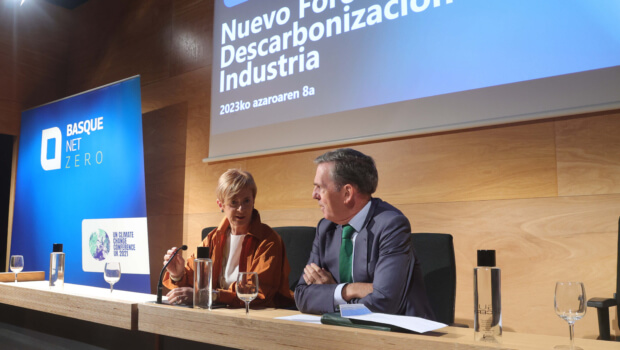
Tapia champions decarbonisation as an “opportunity” for Basque companies
The Net Zero Basque Industrial SuperCluster has presented its results at the new Industry Decarbonisation Forum.
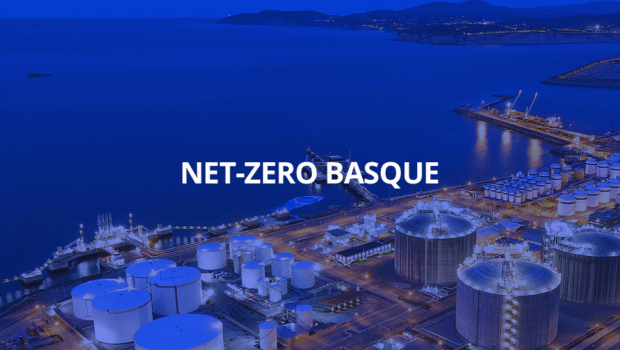
The Industrial Decarbonisation Grant Programme earmarks €10 million for investments in facilities to reduce greenhouse gas
This grant programme will enable investment decisions to be anticipated and the mentoring of the Basque industry so that it continues to be competitive in a European and global context of transition towards climate neutrality.
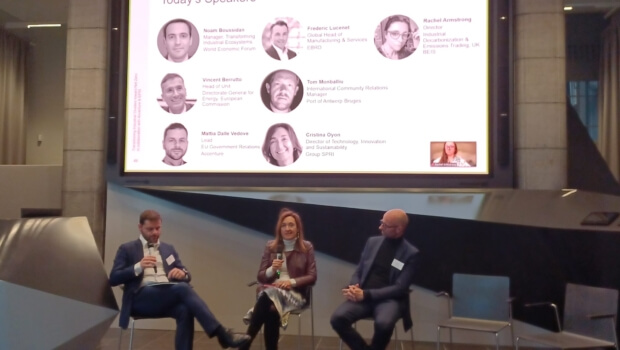
Net-Zero Basque Industrial SuperCluster at the Global Industrial Clusters Meeting 2023
The SPRI Group's Technology, Innovation and Sustainability Director, Cristina Oyón, spoke at Antwerp about decarbonisation policies in Europe.
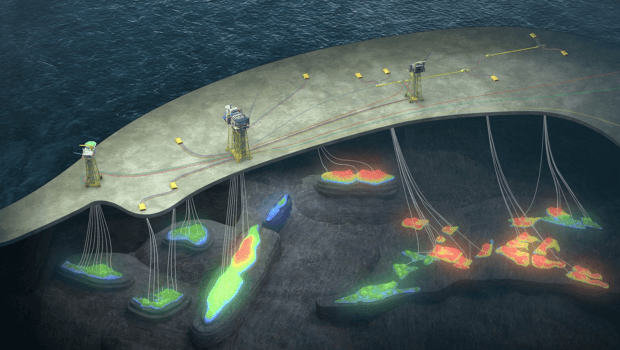
Aker Solutions selects TUBACEX as a delivery partner for umbilical tubes for key projects on the Norwegian Continental Shelf
An order intake for a sum of more than €70 million is one of the most significant deals in the umbilicals market. Solidifying TUBACEX’s technological position as a supplier of advanced industrial solutions for energy and mobility sectors.

Net-Zero Basque Industrial SuperCluster at the EPRI European Workshop Week
SPRI has presented the progress made in the defining of the roadmaps for the decarbonisation of the energy intensive Basque industrial sectors.
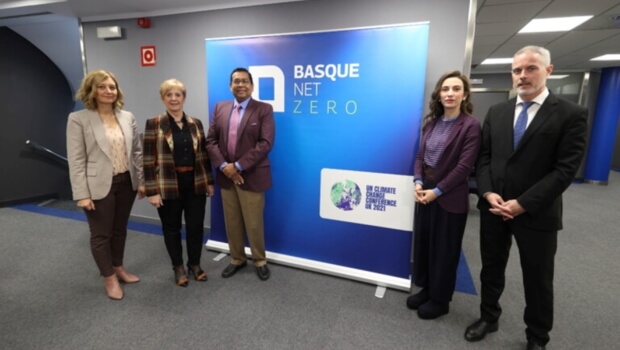
The decarbonisation of Basque industry to now draw on the extensive experience of the US EPRI research centre
Thanks to the agreement between the SPRI Group and EPRI for the joint identification of decarbonisation technologies in the Net-Zero Basque Industrial Super Cluster initiative.
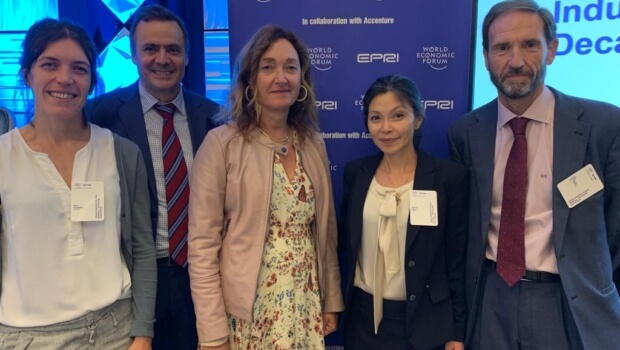
The Basque Country presents the Net-Zero Basque Industrial Super Cluster initiative at the “Technological alliances for decarbonisation” in Houston (USA)
The Net-Zero Basque Industrial Super Cluster is one of the ten regional initiatives invited to form part of the World Economic Forum's project to achieve net zero emissions by 2050.
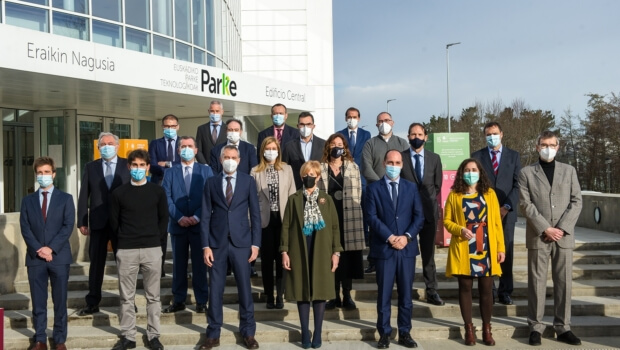
Basque industry launches first phase of actions to achieve net zero emissions
The companies of the Basque Net Zero Industrial Super Cluster, together with Minister Tapia, finalise the work plan focused on the sectors with the highest CO2 emissions in the Basque Country
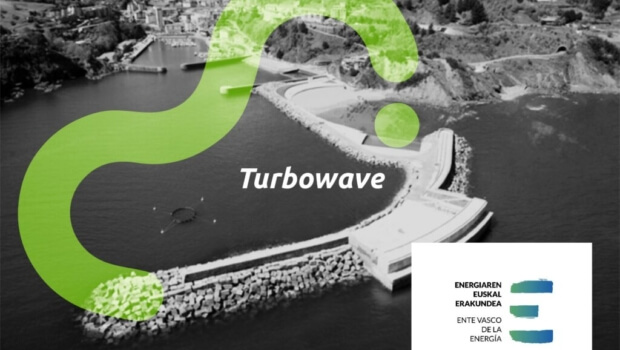
3 February, TurboWave WEBINAR: Public Procurement of innovation for air turbines in the wave energy sector
The final objective is to identify and acquire a cost-effective, reliable and safe system for producing electricity.
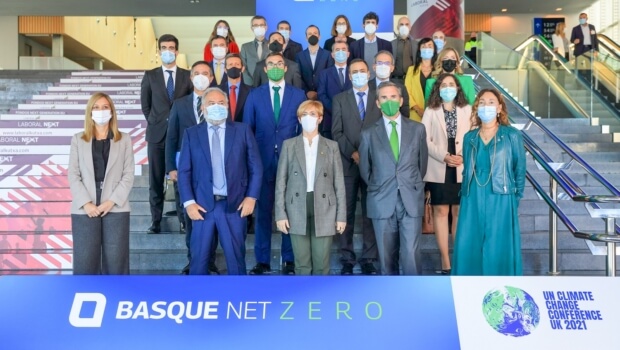
The Basque Country Joins the Global Industrial Alliance at COP26 to Achieve Net Zero Emissions by 2050
Between 2005 and 2020, the Basque Country's business network has managed to reduce its greenhouse gas emission levels by almost 50%

